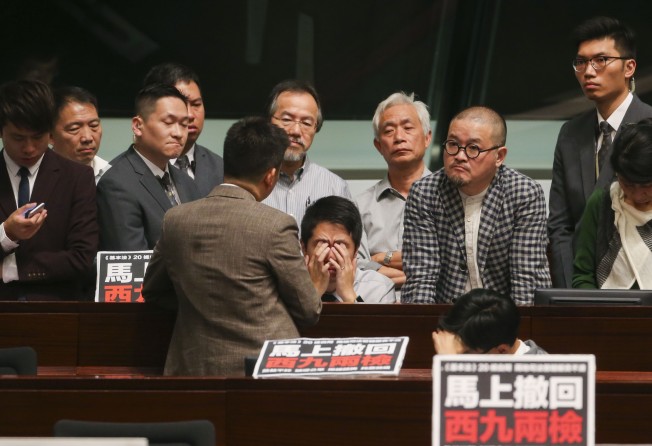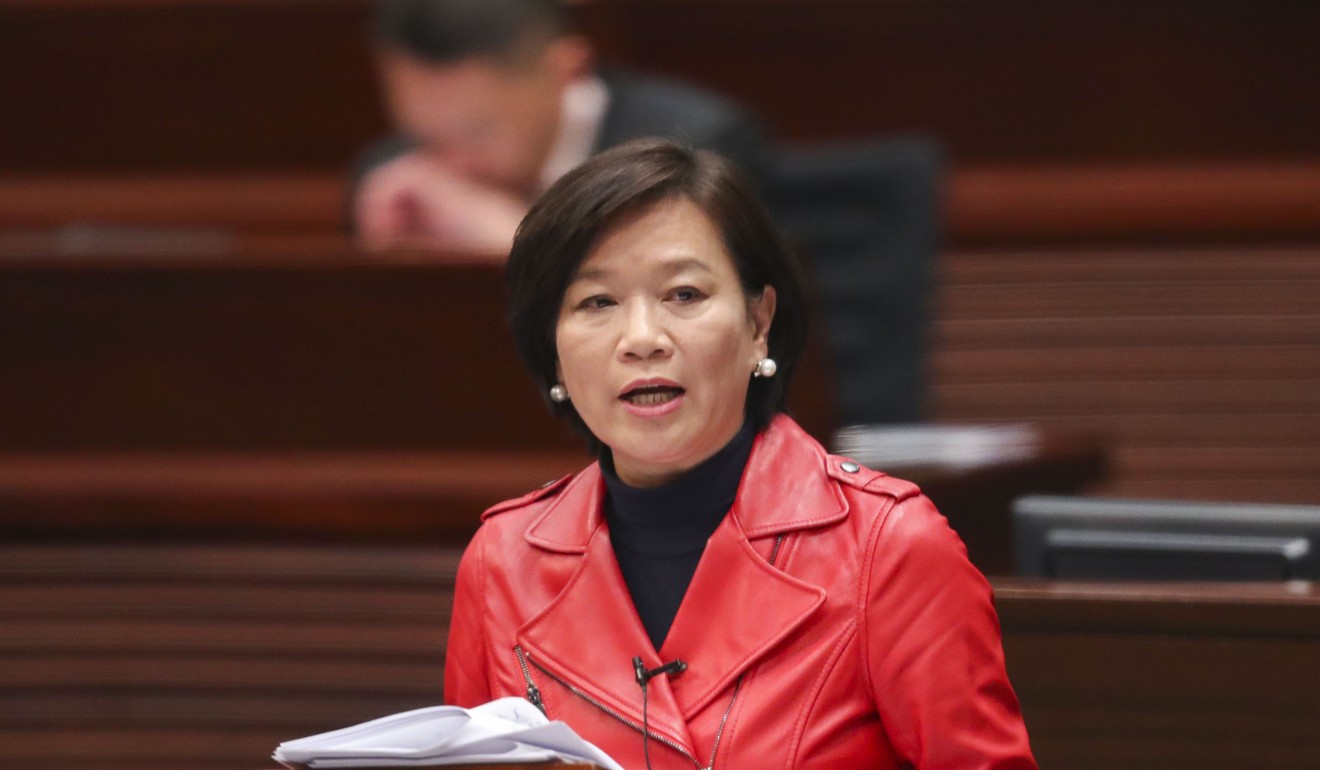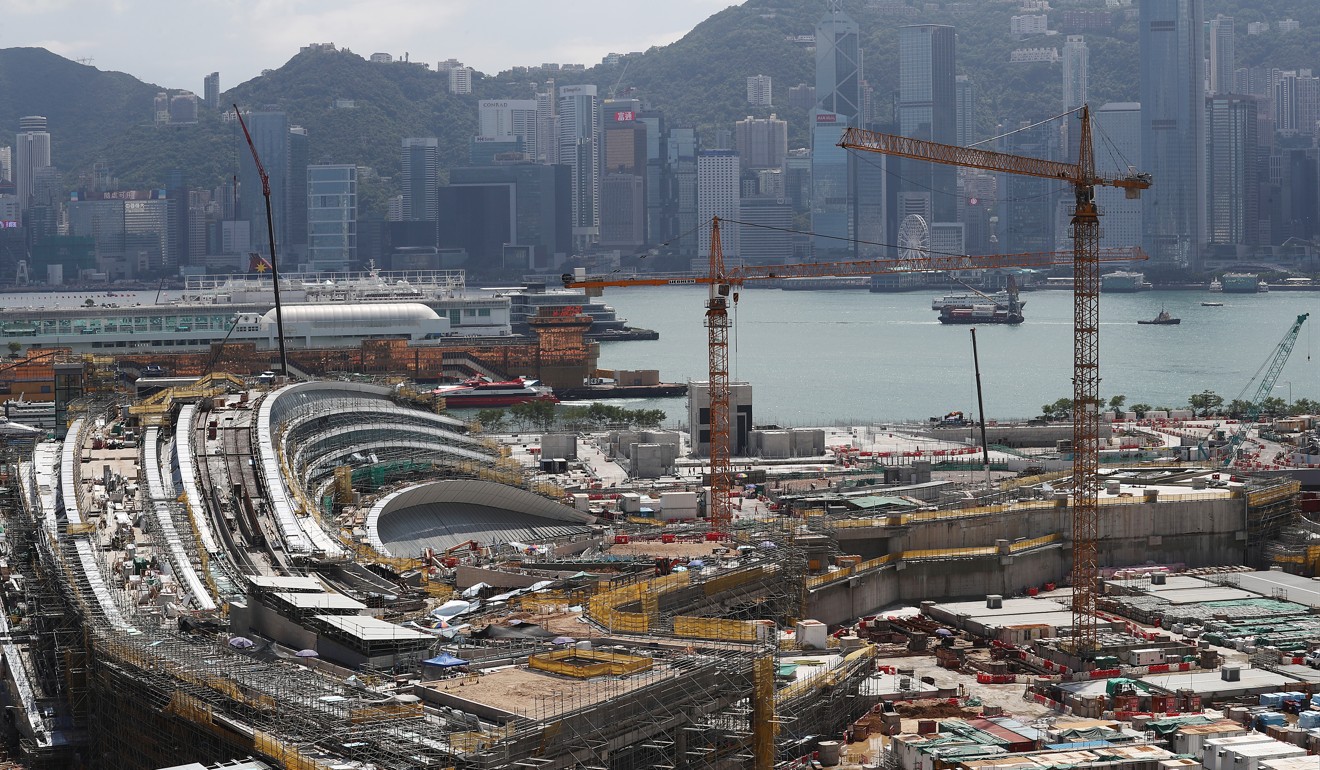Legco debate on joint rail checkpoint adjourned after meeting descends into chaos
Opposition lawmakers sought to delay decision on controversial plans for co-location arrangement

The Legislative Council debate to approve a controversial joint checkpoint on the Hong Kong side for the cross-border railway to Guangzhou descended into all-too-familiar scenes of chaos on Thursday, as opposition lawmakers resorted to new tactics to delay the decision.
With that, they quashed Chief Executive Carrie Lam Cheng Yuet-ngor’s hopes of having the non-binding motion approved by this week, so the government could press ahead with the so-called “co-location” arrangement, with the high-speed rail link expected to open late next year.
The pan-democrats’ filibustering earned a rebuke from Secretary for Justice Rimsky Yuen Kwok-keung, who described the adjournment of the debate as “regrettable” and “deeply disappointing” as he accused them of abusing the rules of procedure.
He said the government would table the motion again on November 15 at the earliest, as Legco meetings next week were already expected to debate Lam’s policy address.

Lam had earlier warned that the government might go ahead with a “three-step process” to adopt co-location without securing support Legco’s support in advance.
“It will depend on the specific work,” Yuen said when he was asked if the government would push on with the process before November 15.
The government has argued that it is a practical necessity to give mainland Chinese officials almost full immigration and customs jurisdiction over part of the rail terminal leased to them in West Kowloon, but the pan-democrats claim it violates the “one country, two systems” principle that allows the city a high degree of autonomy.
Opposition lawmaker Eddie Chu Hoi-dick resorted to an unprecedented tactic, invoking an obscure clause in the rule book to force an additional debate on removing members of the press and public from the chamber, just as Legco was aiming to wrap up the session.

Leung denied accusations that the adjournment had been pre-planned with the government to show that the pro-establishment camp would be justified in its bid to curb filibustering by changing Legco rules.
Democratic Party lawmaker Ted Hui Chi-fung was kicked out the chamber for protesting against Leung’s decision to cut short the debate over Chu’s motion, but not before another round of drama as his pan-democrat colleagues surrounded him to block security guards from ousting him. That prompted Leung’s final decision to adjourn the session.
The city’s News Executives’ Association expressed “deep regret” about Chu’s motion to remove members of the press and public from the chamber.
“The motion seriously undermined the freedom of the press and news coverage as well as the core values of Hong Kong,” it said.